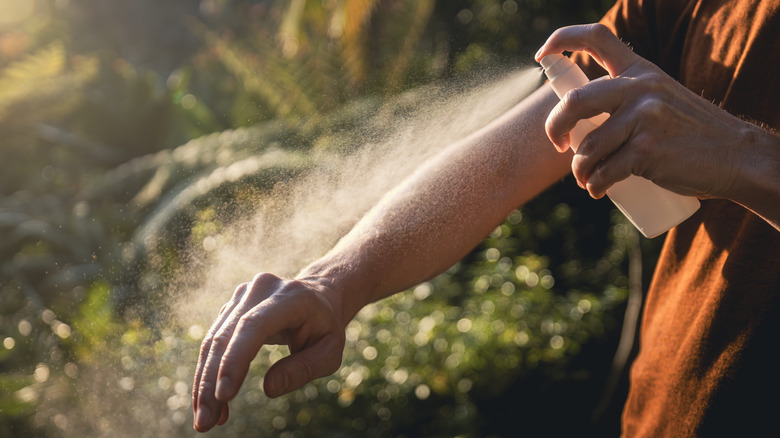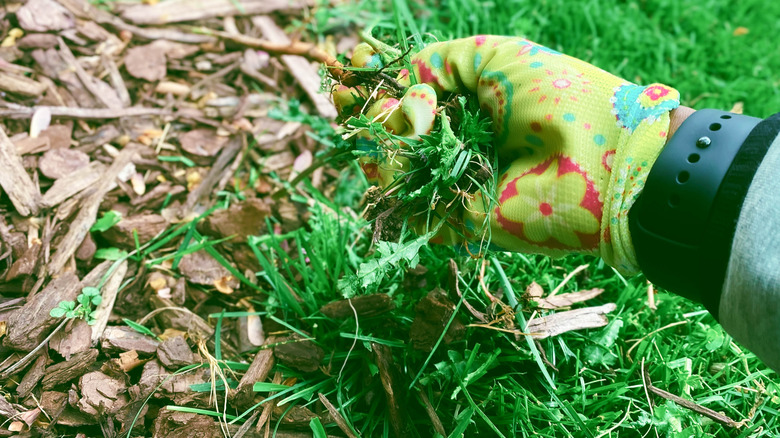Can Bug Spray Put An End To Your Weed Problem? Here's What We Know
Weed management is an inevitable part of a lawn, and you'll also need to keep tabs on getting rid of weeds in your garden, too. With year-round care, you can stop weeds before they become larger problems for plants and property. Chances are that you might already be accustomed to pulling weeds and using pre-emergent and post-emergent herbicides, as well as other types of weed killers to consider spraying in your yard. Sometimes it can be helpful to be able to multitask during your outdoor activities though, and you might be wondering whether the internet rumor of using bug spray truly works against weeds. It turns out that bug spray can indeed kill weeds, but it's not an expert-backed method of solving all of your weed problems. There are also some major downsides that might make you think twice about using this technique.
Many people regard bug spray as an important tool to keep themselves safe while enjoying outdoor activities, particularly during warmer weather. In fact, the Centers for Disease Control and Prevention (CDC) recommends using insect repellents to protect yourself against mosquitoes, including those with safe and effective ingredients such as DEET, oil of lemon eucalyptus, or picaridin. Just as mosquitoes don't like insect repellents, it turns out that plants don't, either. This is where the idea of using DEET-containing bug sprays for weeds has turned into a purported hack that's promoted through various online forums.
Why you might want to skip bug spray for weed control
There's a good chance that spraying insect repellent with DEET could harm weeds. The problem is that the product is also likely to kill any other plants near weeds, too. It's thought that DEET can induce phytotoxicity, which can then burn plant foliage. As one research project reported by Iowa State University Extension revealed, one brand-name DEET-containing mosquito repellent severely burned grass within three hours. The turf changed color from green to purple, and then to brown. Some of the grass recovered within a few weeks, while some spots never did. The severity of damage can vary based on brand, but it may not be worth taking this risk.
If you do decide to try the bug spray trick against weeds, know that users of this hack promote DEET-containing repellents. Aside from injuries to grass and nearby plants, it's also important to know that these types of products may only work against annual weeds, with possibilities including ragweed, crabgrass, and mallow. It's thought that DEET may injure perennial weeds, but they will soon grow back thanks to their deeper root systems that help sustain them. An even better option is to skip bug spray altogether and to use selective herbicide products designed to kill specific weeds while preserving other plants and grass.
Also, if you use insect repellents for yourself and your family, just be sure you spray in an open area away from any plants and from grass. Otherwise, you could inadvertently burn them. Similarly, it's also not safe to use bug spray to keep pests off plants in the garden.

